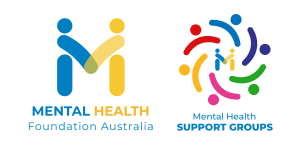Bipolar Carers' Support Group
The carers of those with Bipolar disorder play a major role in helping the ones affected live a near normal life. The care givers need care too and this support group welcomes carers to network once a month and discuss coping strategies for the mental stress they endure. This group is a non-judgemental and safe space to discuss with peer care givers and will be led by a trained facilitator. Each MHFA Support Group is free.
Due to unforeseen circumstances, this group will not be running in March. We will keep you updated of any changes. Thank you for your understanding.
Session 1: Face-to-Face
Bipolar Carers Support Group
Schedule
Every first Thursday of the month
7:00pm - 8:30pm
Mental Health Foundation Australia
How to get there?
Face-to-Face sessions are conducted at the Mental Health Foundation Australia located at G1, 10 Yarra Street, South Yarra VIC 3141.
If you plan to attend in-person, public transport is the easiest way to access the Wellness Hub. Private parking is available in the area- please be aware of closing times.
Session 2: Online
Bipolar Carers Support Group
Schedule
Every third Thursday of the month
7:00pm - 8:30pm (Melbourne Time)
Online session
How to attend a online session?
Online sessions are conducted on Zoom.
Trouble accessing Zoom? Click here
Our online groups are available to you from anywhere and everywhere, wherever you are in the world.
Troubleshooting tips for Online Meetings:
- If you are having trouble connecting you could try clearing your browser cache.
- There are instructions for this for Chrome, Firefox, Edge and Safari.
- You could also try restarting the Zoom app on your computer or mobile device.
- Zoom do offer some technical support with a knowledge base and customer support.
Unfortunately the MHFA can do very little to assist with connection issues as Zoom is a 3rd party application and out of our control.
About Bipolar Disorder

Matthew Dale, Bipolar Carers' Support Group Facilitator
Matthew Dale has been working for over 17 years in the mental health sector in a variety of different roles including mental health promotion, outreach support, peer work, respite and as a family and carers worker. He was drawn to working in the mental health sector due to his own experience of mental ill health (Bipolar II) and recovery. He is passionate about mental health promotion and the importance that early intervention / prevention can make in helping a person in their unique and individual journey to recovery from mental illness. He believes in empowering individuals to develop self-belief, confidence and hope for a meaningful life despite their mental health challenges.
Matthew recognises the importance of education in helping a person to stay well and that we can all learn something new from each other. He currently works as a Mental Health Practitioner at a new state funded mental health initiative in South East Melbourne and also volunteers as a Peer Ambassador for SANE Australia. He is on the committee of Bipolar Life and facilitates the Bipolar Carers Support Group through the Mental Health Foundation Australia.


